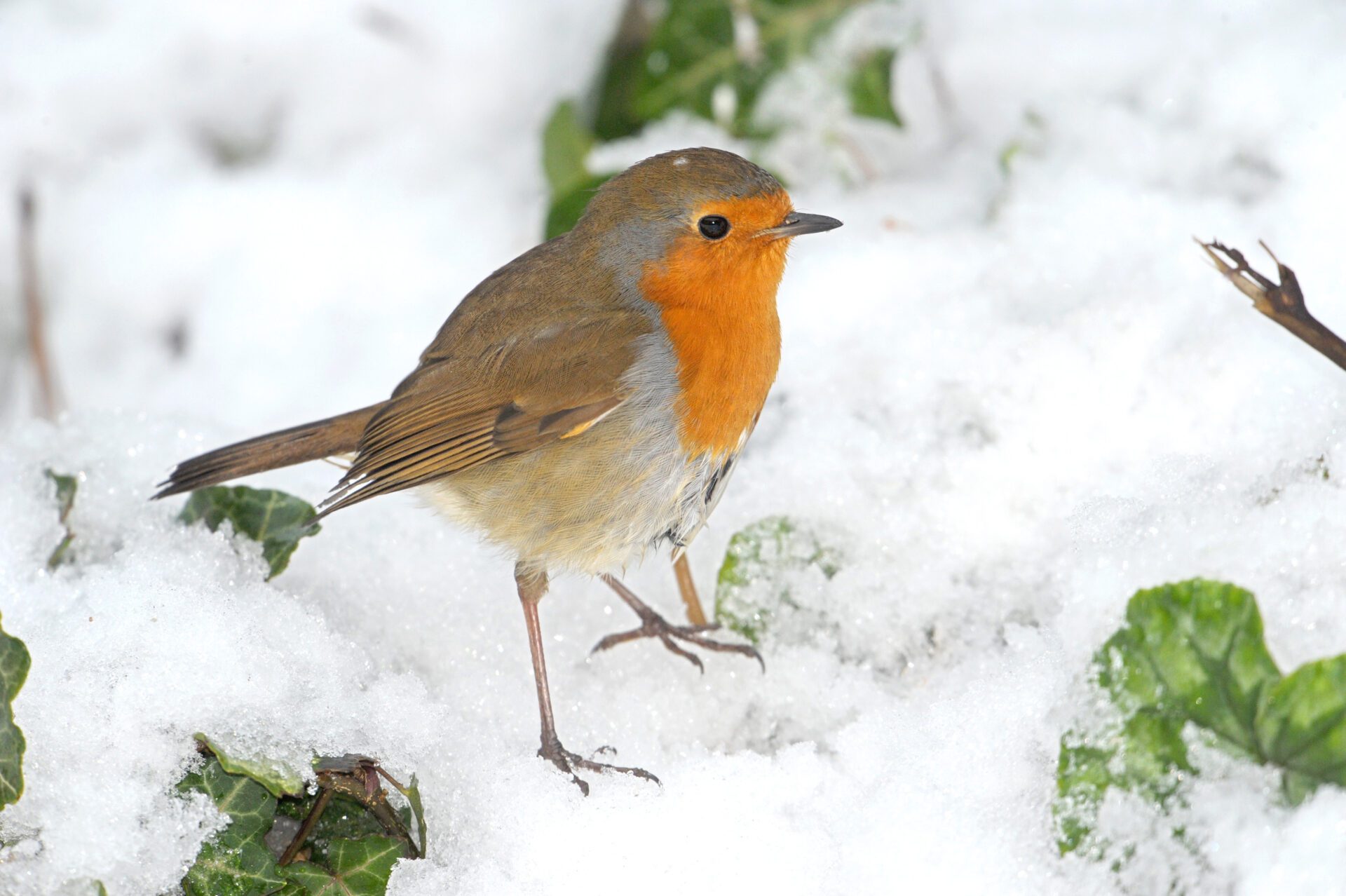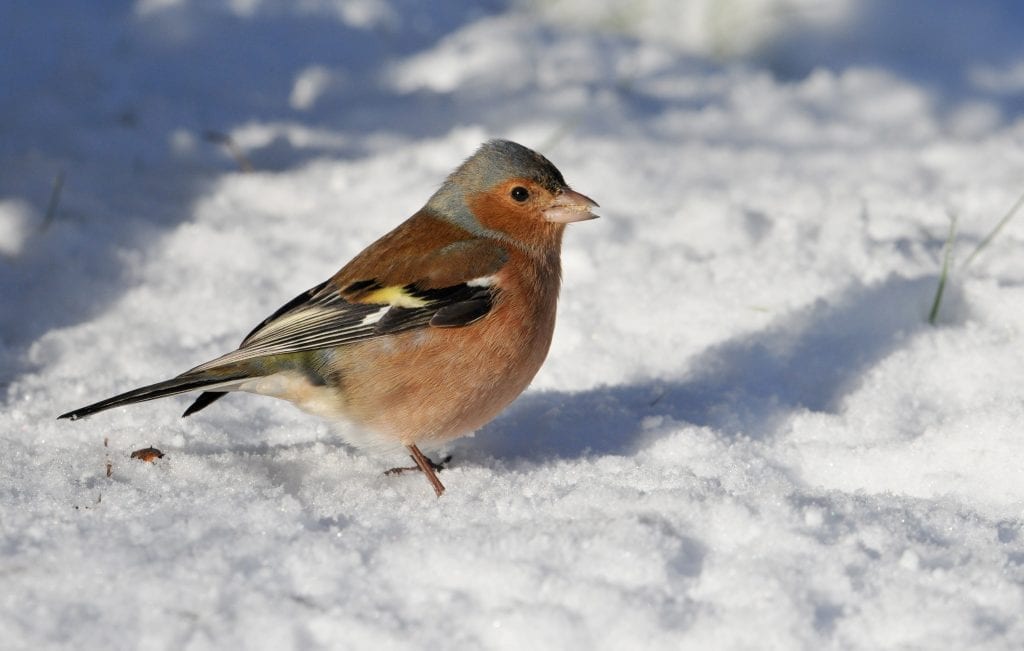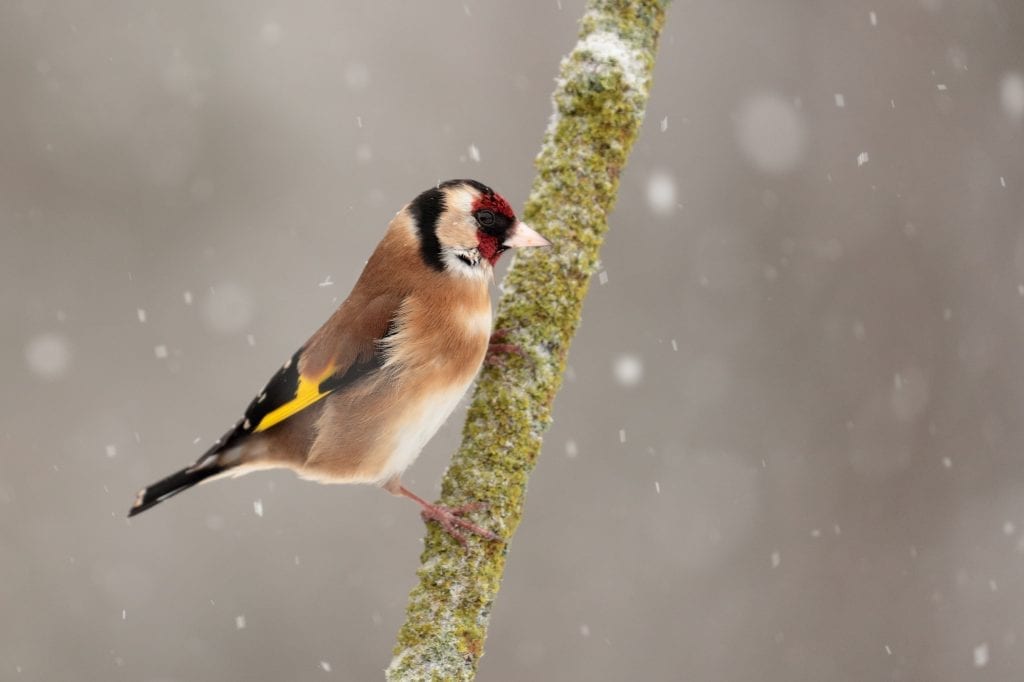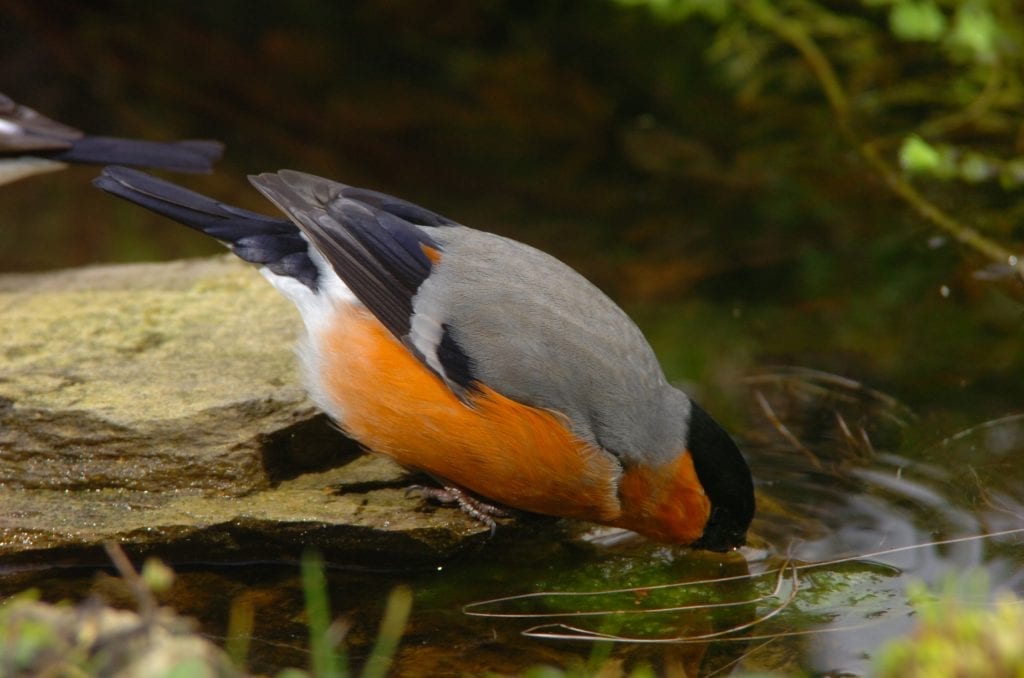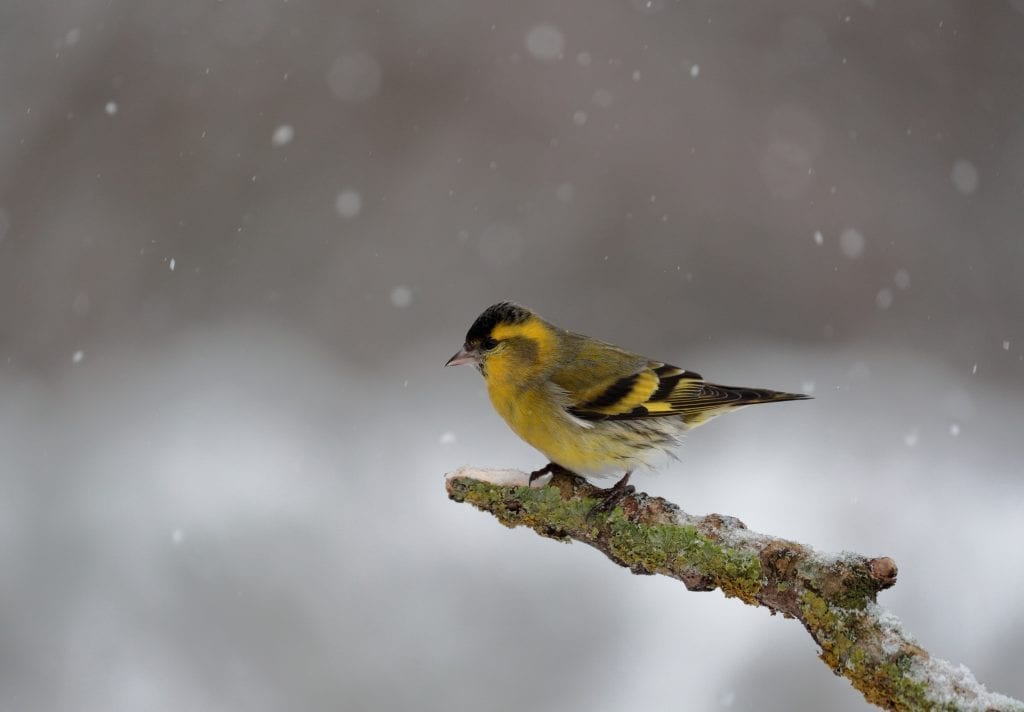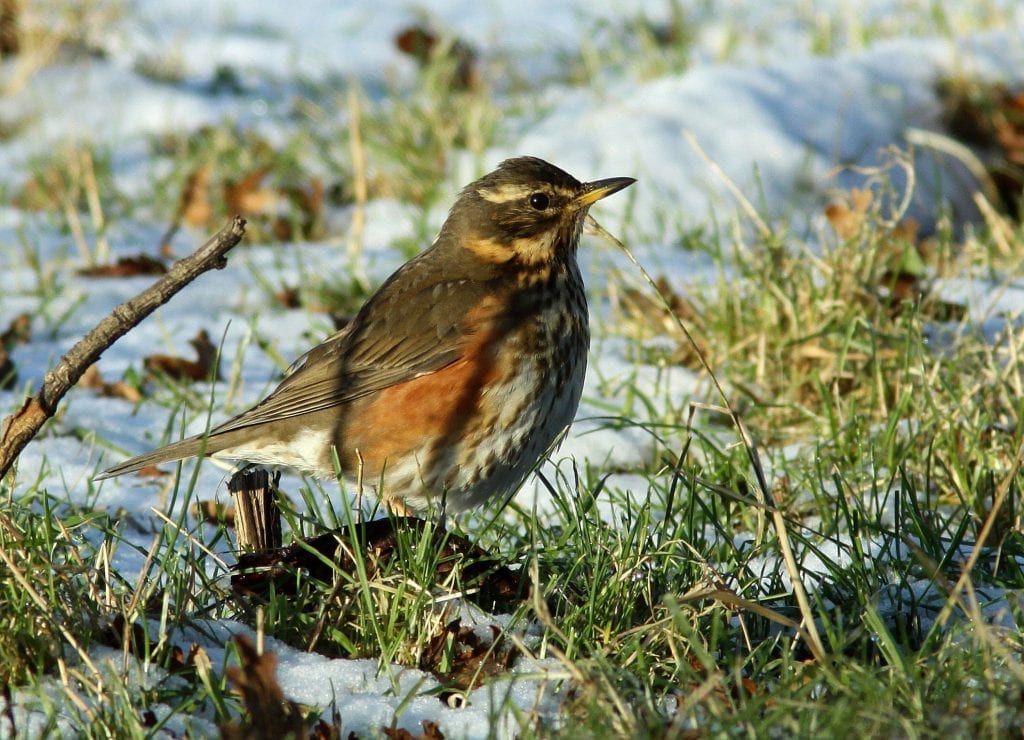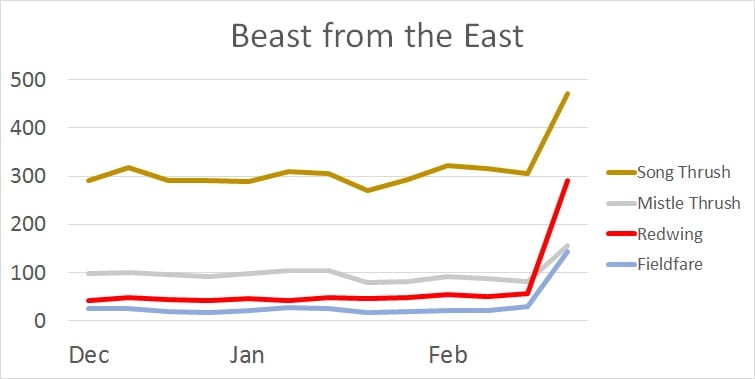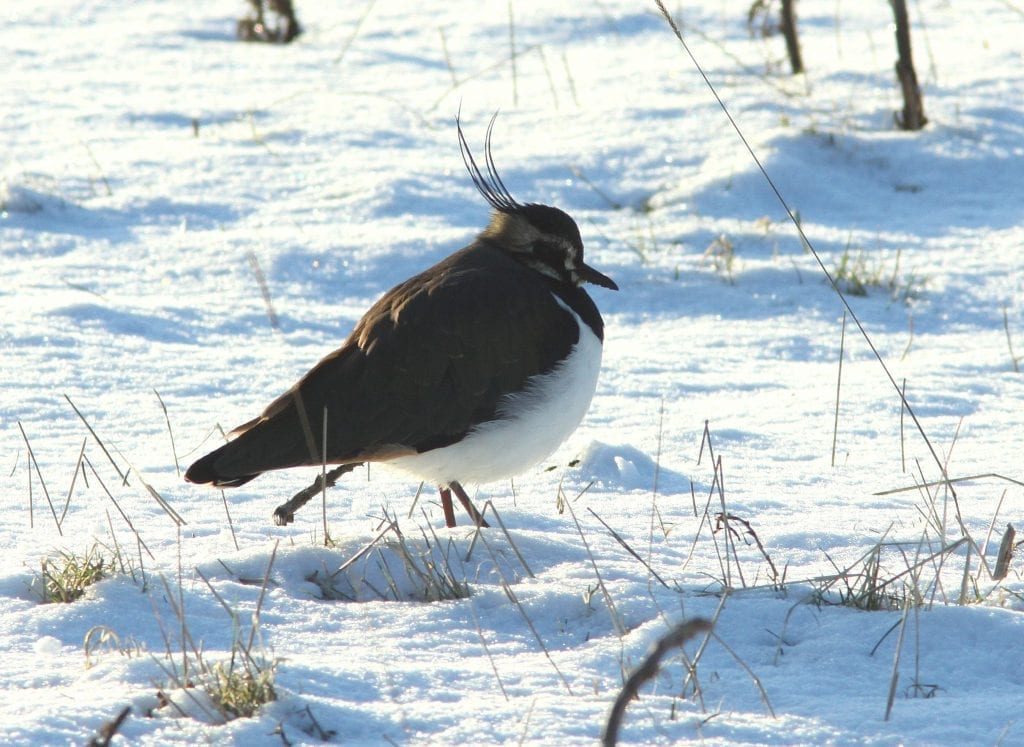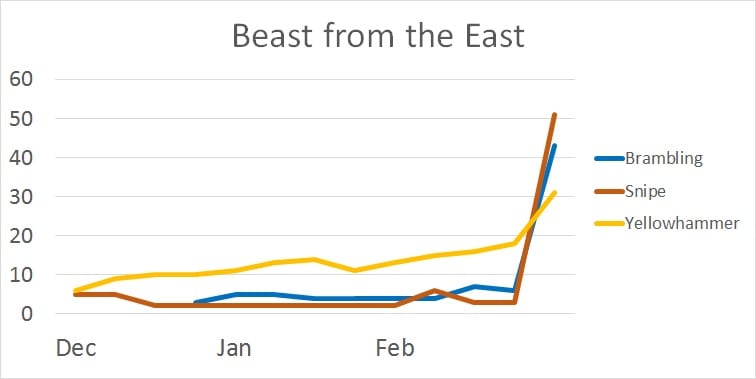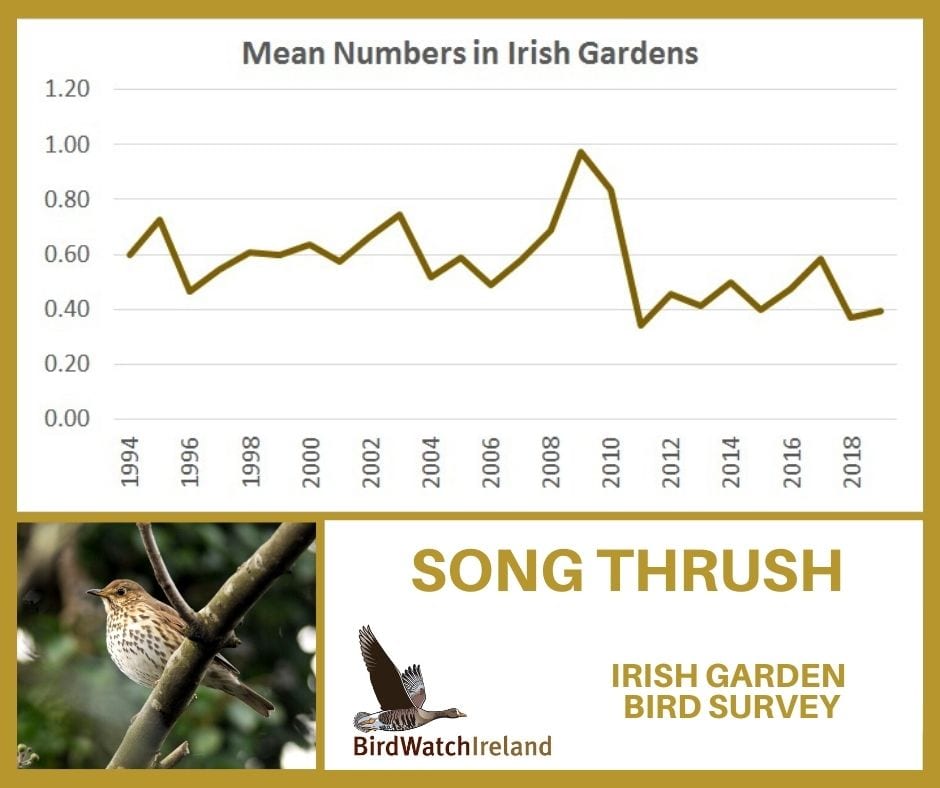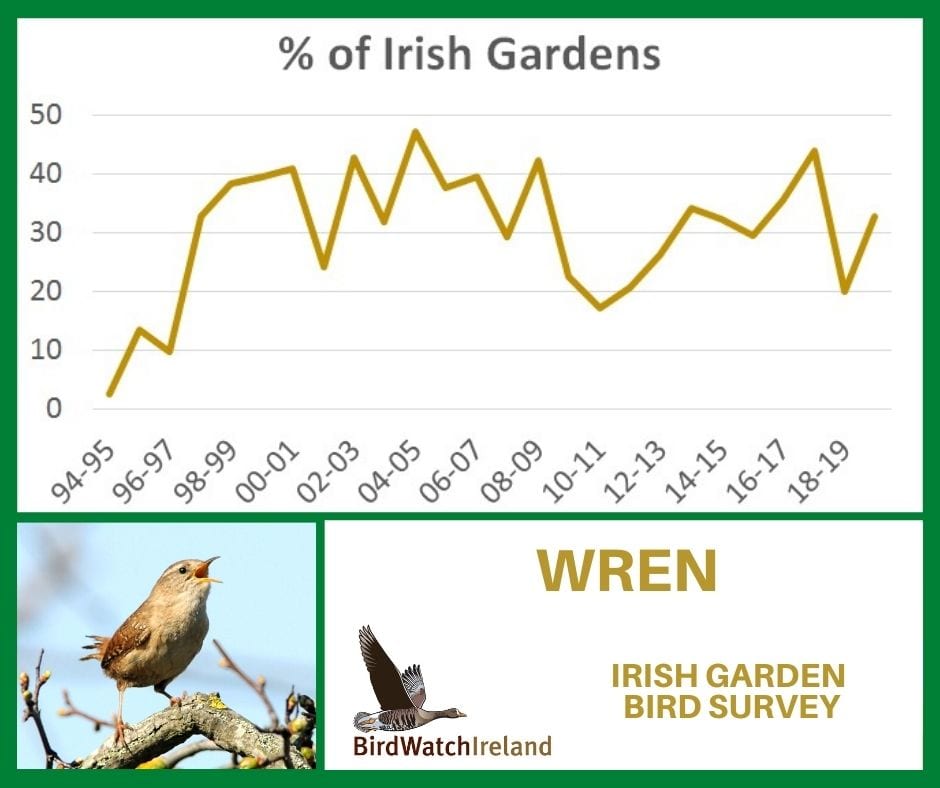BirdWatch Ireland is urging people to look after their garden birds during the coming cold weather.
A number of weather alerts are already in place, and though we can only speculate as to how much snow will actually fall in Ireland, we know for sure that much of the next two weeks is going to be very very cold. When you’re preparing for the weather ahead, spare a thought for your garden birds too. There’s a few things you can do to make a real difference for them!
This time of year is known in the scientific literature as the ‘hungry gap’ for many small birds. It’s the period when all of last autumns fruit and berries is gone from the trees, and before spring comes into action and we start seeing growth in hedgerows and trees and increased activity of invertebrates that birds might feed on. That means this is the time of year when the lowest possible amount of natural food is available. So, when a prolonged cold spell hits at this time of year it can be life or death for our small birds.
See below for important information to bear in mind during this cold spell.
The Irish Garden Bird Survey is kindly sponsored by Ballymaloe.
What to Feed your Garden Birds
If you can, make sure to stock up on birdfood – see our ‘Feeding Your Garden Birds’ section for full details. If you can’ get your hands on traditional birdfood, try chopped apples and pears, leaving out bits of bread or breadcrumbs (make sure the bread isn’t mouldy), porridge oats, and if you’re heading to the shop this week then see here for everything you’ll need to make your own fatballs. Fatballs and similar suet blocks/pellets provide a lot of calories for birds, which is crucial to help them survive this cold spell.
When and Where to Feed your Garden Birds
Don’t wait until snow hits to put food out for your birds – put it out now so they can build and maintain their strength and far reserves ahead of the worst of the weather. The best time of day to put out food is first thing in the morning. Your garden birds haven’t been able to feed for the 15+ hours of darkness, so breakfast really is the most important meal of the day for them. If you put it out first thing, you’re helping get them back to full strength immediately, and they have all day to come and go as they please. Remember too to put out food in a variety of places such as birdfeeders, tables, on the ground or on top of flat roofs or walls – some birds prefer to feed from a flat surface and aren’t adept at clinging onto feeders. Spread the food out to a few different places in your garden if possible, so the birds aren’t all fighting with each other for access.
Just Add Water
Believe it or not, birds need water every day both to drink and to bathe in. When the weather is cold, all of their natural water sources (ponds, streams, puddles) freeze over and birds have to roam further and further to find water, using up a lot of energy in the process. Make it easy for them by providing water in a shallow dish of some sort – a high-rimmed plate, a plant pot saucer, something (clean) from your recycling bin etc. If you don’t have anything shallow enough, put a stick or a rock in something deeper so they can perch on that and drink accordingly. Take the water dish in each night and put out fresh water in the morning. Remember, it’s no good to them if it has frozen overnight!
Escaping the Cold
If you’re taking part in the Irish Garden Bird Survey, this could be an interesting week! In the past we’ve seen a clear trend of increased numbers of individual birds, and species, retreating to gardens in search of food during snow and heavy frost. Numbers of Blackbirds, Song Thrushes and Mistle Thrushes all increase, as do Redwing and Fieldfare – two migratory species of thrush that spend the winter here. The latter two prefer to feed in wet grassland fields, looking for invertebrates, but their numbers in gardens increased dramatically during the ‘Beast from the East’ back in February 2018.
The ‘Beast from the East’ hit Ireland during the last week of the 2017/18 Irish Garden Bird Survey – notice the huge increase in the number of thrushes in Irish Gardens that week.
Depending on where you live, you might even be visited by some wader species that normally never use gardens. During the last heavy snow we had, there were multiple reports of species Lapwing, Golden Plover and Snipe in rural gardens across the country. These birds prefer open fields near wetlands, but if gardens offer the best chance of some bare ground for feeding, or shelter from the elements, then that’s where they’ll go!
A few other unexpected species retreated to Irish gardens during the last ‘Beast from the East’ in February 2018. Results from the Irish Garden bird Survey that year show a big increase in numbers of Brambling, Snipe, Yellowhammer, among other species.
Long-term impacts of Short Cold Spells
Looking forward, depending on how long any snow lasts we might see declines in some small species like Wren, Goldcrest and Long-tailed Tit, some bigger birds like Song Thrush that rely on invertebrate prey that aren’t available during the snow, and some habitat specialists like Grey Wagtail (river specialist) and Meadow Pipit (upland and bog specialist) that similarly rely on invertebrates. Even a few days of snow can be enough to cause a big drop in numbers that takes a few years to recover from. Some of these species have only just recovered to pre-Beast from the East levels. As climate change continues, our winters are expected to become milder but also more unpredictable i.e. more sudden snow events or extreme wet and windy storms. Birds can bounce back from these when they only happen once every so often, but the more regularly they become, the more prolonged the declines of many species we often take for granted.
Song Thrush numbers declined significantly after the two snowy winters of 2009/10 and 2010/11, with a smaller decline after the last Beast from the East.
Wren numbers in Irish gardens declined significantly after the two snowy winters of 2009/10 and 2010/11, with a similar decline after the last Beast from the East.
So, please remember your garden birds over the next few weeks – a few simple actions can help them survive the cold weather and ensure your garden and surrounding landscape is alive with birdsong this spring and summer!
We are hugely grateful to Ballymaloe for their sponsorship and support of the Irish Garden Bird Survey.
Useful Links:
Tips and Advice for Feeding Your Garden Birds
Instructions on Making Your Own Fatballs for your Garden Birds

